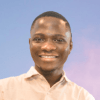Olayinka Omigbodun is the immediate-past Head of Psychiatry, College of Medicine, University of Ibadan and an honorary consultant in Child and Adolescent Psychiatry to the University College Hospital, Ibadan.
The pioneering director at the university’s Centre for Child and Adolescent Mental Health, which started with funding from the John D. and Catherine T. MacArthur Foundation, tells ALEXANDER OKERE about motivation, career and family
For how long have you been a professor and how would you describe your experience as an academic?
I became a professor on October 1, 2008; that was 11 years ago. I actually qualified as a psychiatrist in 1991 but the university would not give me a job. Fortunately, my husband got a fellowship position in the United States in 1993, so I travelled to the US with the family. I did not take up an academic position with the university until I returned in 1997. It has been very eventful since I started working at the University of Ibadan. I started my career in child and adolescent psychiatry in 1986 as a resident under the tutelage of (the late) Prof Michael Oludare Olatawura and did part of my residency in Nigeria and the United Kingdom.
Were you educated in Nigeria?
I started nursery school in Lagos at the Adrao International School, Victoria Island, Lagos. I was living with my parents at that time in Lagos. My father was in the army at the time and my mother was a housewife. My mother was a Sierra Leonean and my father was a Nigerian. We left for Sierra Leone a day before the civil war broke out. In Sierra Leone, I attended the Holy Rosary Primary School, Kenema, about 300 miles from Freetown. I was there for two years before we moved to Freetown, where I attended St. Anne’s Primary School for one year. When the war ended in 1970, we returned with my mum to Nigeria and I attended the Staff School, University of Ibadan.
I spent three years at the school before I moved to St. Louis Grammar School, Mokola, Ibadan. Then I had my advanced levels for two years at the International School, University of Ibadan, and gained admission to UI through direct entry to study Medicine and Surgery in 1980. In 1990, one of my senior professors, Olabisi Odejide, asked me whether I would like to have some exposure abroad; that was when I moved to England. I lived in Lancaster and worked at the Lancaster Moor Hospital. I was also at the Queen’s Park Hospital, in Blackburn. I obtained a diploma in Psychiatry from the Victorian University of Manchester in 1992. While I was in the UK, I flew into Nigeria for my final fellowship examinations in the West African College of Physicians in the Faculty of Psychiatry and the National Postgraduate College of Medicine in Psychiatry in 1991. By 1993, I was in the US at the Department of Family Studies, University of Pennsylvania, Philadelphia, training and working as a family and relationship therapist. I also did some research in the Bipolar Disorders Unit. I must say that having training exposure on three continents really enriched me.
Was it a personal decision to study Psychiatry?
Yes. When I got to medical school, I thought I would do paediatrics. However, on the first day of my rotation at the paediatrics ward, I decided that I could not do it anymore because seeing sick children was too traumatic for me and I didn’t think I would be able to handle them. So, I took my mind of that specialty until I got to the Psychiatry rotation; it was wonderful. I was fascinated by patients who had mental health conditions; some of them heard the voices of people they could not see while some were very depressed. I remember meeting a man who was partially paralysed because he had fallen from a three-storey building when he was depressed and had attempted suicide.
I met interesting patients with different stories. I also found that in psychiatry, we don’t just deal with a part of the body but with the whole patient, with their family and community and work; in psychiatry, we learned to carry out holistic assessments of patients and their families and I found this very interesting. It was in-depth work.

Olalekan Ajimoti – Blogger, Content Writer, and Digital Marketer helping brands and retailers build 8-figure e-commerce since 2016.
As a corporate trainer, brand communications expert, and brand consultant, I help people start, stay and grow in business leveraging digital skills and traditional expertise.





